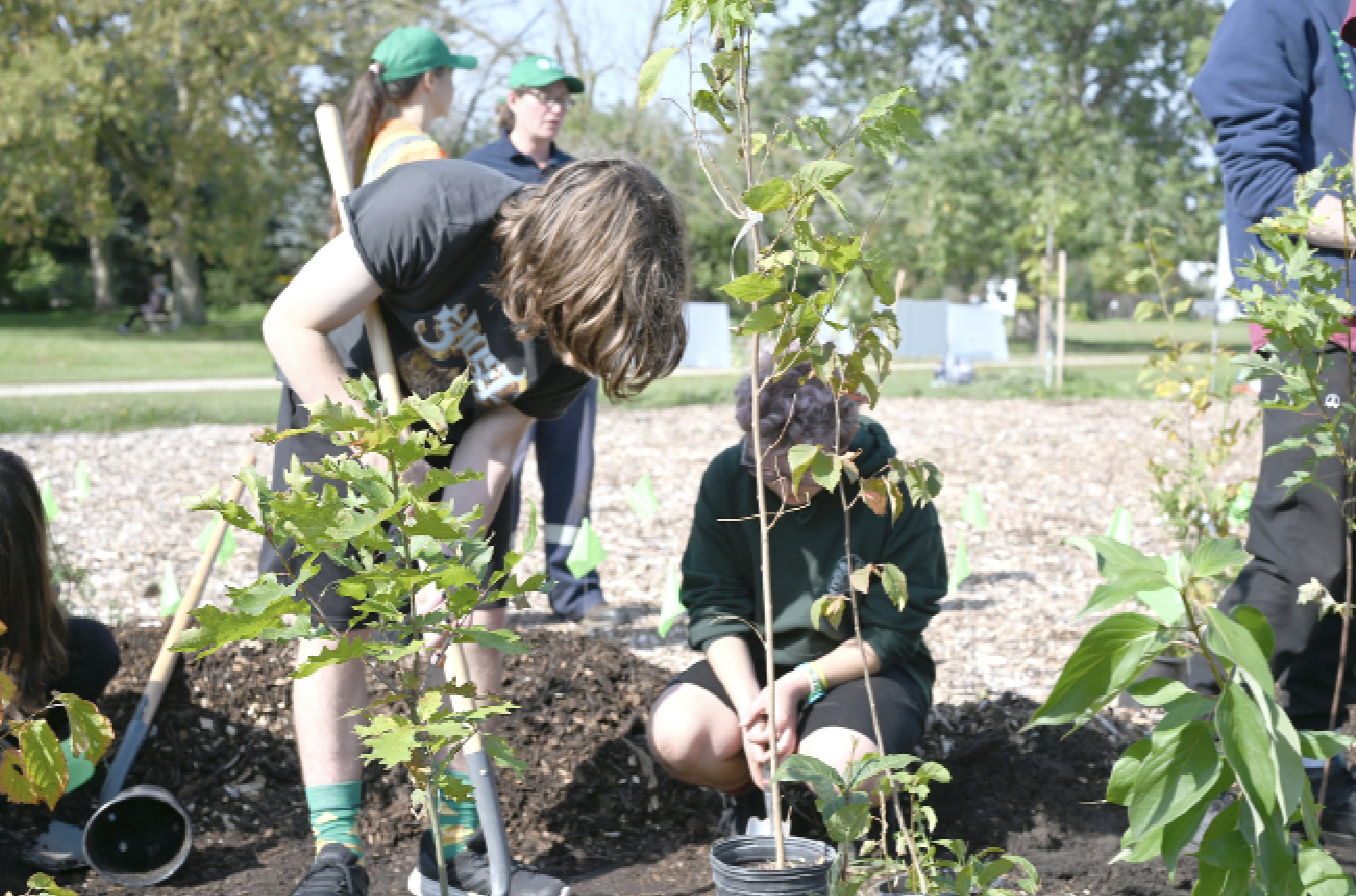GUELPH — The City of Guelph welcomed grade 7 and 8 students from schools in the area to help start Guelph’s first mini forest in the innovative Japanese Miyawaki tree planting method ahead of their community tree planting event.
Schools included: Sacred Heart Catholic School in Guelph, environmental science students from St. James Catholic High School, Our Lady of Lourdes Catholic High School and Bishop Macdonell Catholic High School.
Students gathered at the York Road Park throughout the day to plant native trees and shrubs tightly together based on the Miyawaki method, which uses higher density and greater species diversity. This results in taller plants in a shorter period than standard techniques.
“What we’re trying to do here is we’re trying to recreate a small forest and this technique is something that’s being tried in municipalities. It’s great for areas that are often like those little corners in the urban environment that you can’t really do anything else with,” said Jay Cranstone, Natural Areas Stewardship Technologist, Forestry and Sustainable Landscapes, Parks with the City of Guelph.
“So, we’re trying to experiment with that to see how it works here in Guelph. And we’re going to take some of those lessons and apply them to our other naturalization plantings through the City. The students today, they’re going to be planting maybe about a third of the trees.”
Guelph is one of only five pilot communities in Canada taking part in this year’s National Mini Forest Pilot project. When Peter Glaab, Wellington Catholic DSB’s Healthy Active Living Resources Teachers, heard about the project from Cranstone, he knew this would be a great opportunity for students to be involved.
“We contacted Peter late in August with this opportunity and he was kind enough to do some digging and get a great number of students out for us today,” began Cranstone. “We’re so excited. It’s a bit chaotic, but it’s a great chaos and I can see the plants are going in really well.”
“We could do this ourselves, but getting the students involved – we’re hoping to inspire them. I mean, they’re the next generation, right? And we know that they’re concerned about climate change and wanting to be able to do something,” he said.
Among the students in attendance was Indigo Moran, grade 11 environmental science SHSM student at St. James CHS. They were extremely excited about the opportunity to give back to their community through the initiative.
“I really care about the environment and protecting the climate,” they said. “I also really enjoy stuff like this, just being out in nature, getting my hands dirty.”
“Trees do a lot for us, and I don’t think we appreciate them enough.”
Moran is one of the many students who contributed to planting the mini forest today through the City initiative. Mark Kaufman, St. James CHS and Moran’s teacher, expanded on the importance of doing the work, not just learning about it in classrooms.
“This course focuses on hands on learning, kinesthetic opportunities. They get a chance to actually see how the actual science would work in the forest area. But at the same time, the City of Guelph and Trees for Guelph have been helping St. James CHS to bring plants and trees into our community. So to be able to come and give back to the City is a great opportunity,” he said. “We have a fantastic set of students that are here.”
The City of Guelph shared that mini forests, such as the site planted today, help to reduce air pollution, increase biodiversity and provide much-needed habitat for wildlife as well as providing social benefits such as improved mental and physical health and deepened connections to nature.
Going on to share that, native mini forests are small but mighty contributions to the fight against habitat loss and climate change.
While the community event has now reached capacity with pre-registration, all are welcome to attend or visit and see Guelph’s first mini forest on Sept. 23 at York Road Park between 9am and 12:30pm, rain or shine.




